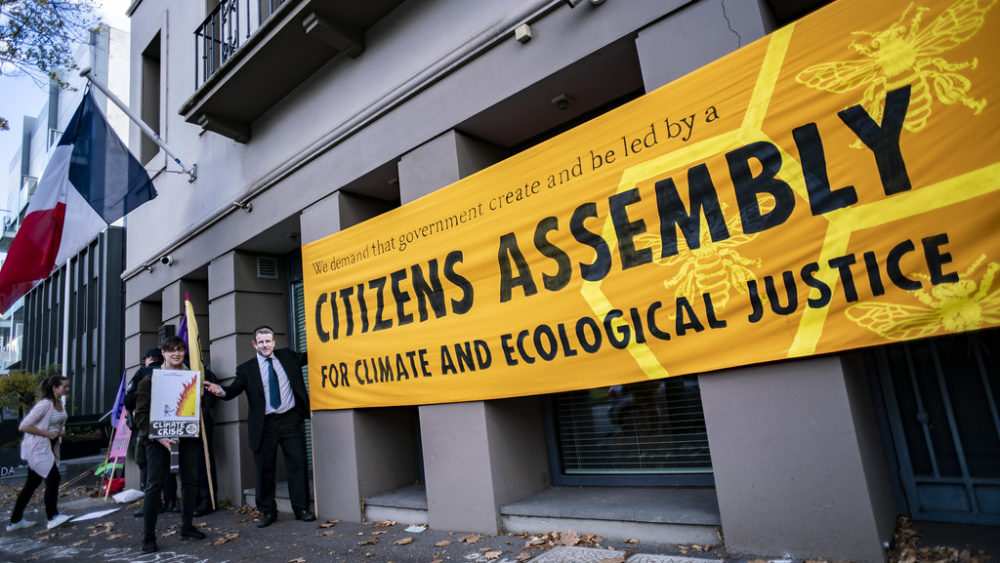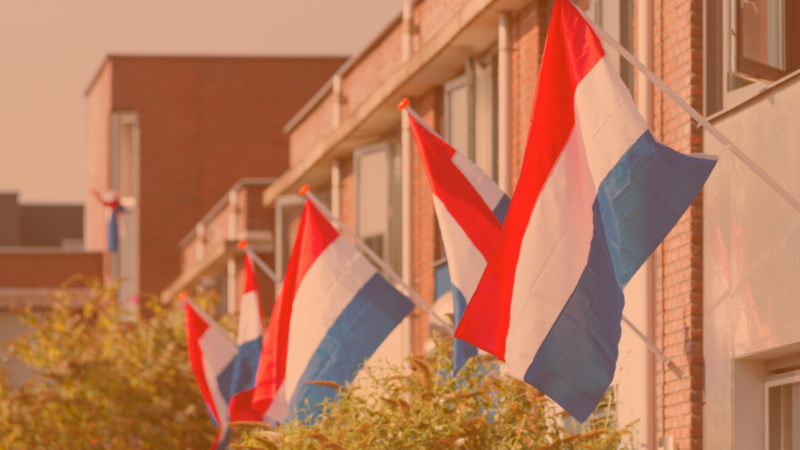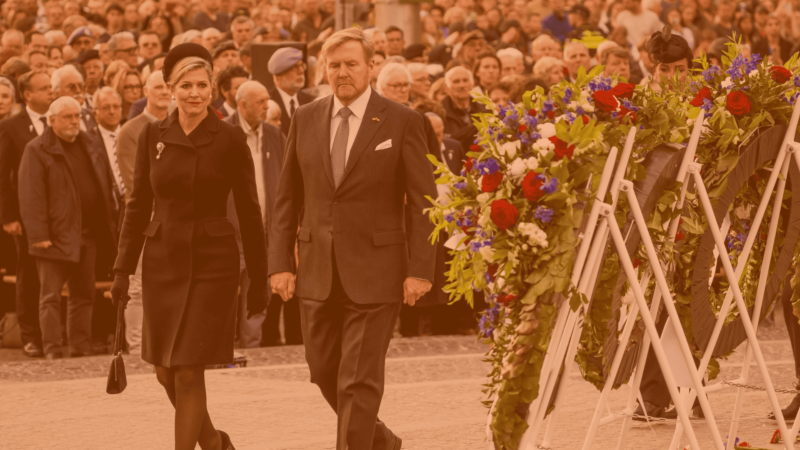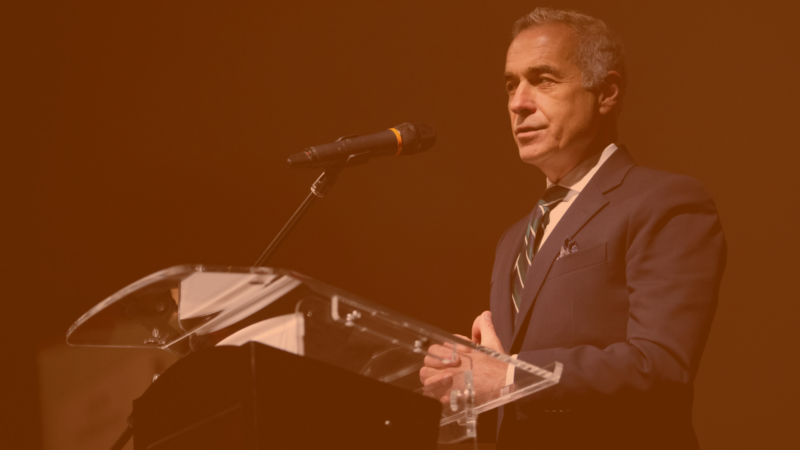DiEM25’s Deliberative Democracy group (DD DSC) came into existence to increase our members’ literacy about a whole range of tools which cherish this aspect of democracy at a time when it is particularly under attack from far-right techniques of polarisation between Us and Them.
Ever since the motion on Citizens’ Assemblies for Democracy in Europe was passed at our Prague Assembly in 2019, we have been building relationships with talented organisations and experts involved in this field. More recently the DD DSC has taken a particular interest in the potential impact of these decision-making ‘mini-publics’ on the democracy of towns, cities and local authorities. O
ne good example is the citizens assembly held in Bristol in January 2020 around a core theme for all of us, worldwide: “How do we recover from COVID-19 and create a better future for all in Bristol?” In June, Rosemary Bechler interviewed the organiser, Councillor Paula O’Rourke. If this interests you, please join us in the Deliberative Democracy DSC and help us spread the word!
Paula O’Rourke is leader of the 24 Green councillors on Bristol Council. Elected as a Green councillor for Clifton in 2016 at the age of 58, this was her second career. Formerly, Paula worked in leadership in secondary schools and taught English, history, law and citizenship. She was the first chair of the Friends of Clifton Centre and Library and ran the Friday Film Club. She also worked on the first ever local LitFest in November 2019, running the annual Shakesbeer Promenade, an on-street Shakespeare festival.
Rosemary Bechler: Congratulations, first of all, on becoming the leader of 24 Green councillors on Bristol council.
Paula O’Rourke: Yes, it’s going to make quite a difference: we’ve gone from 11 councillors in a council with a resounding Labour majority for the last five years. I’m glad to have been appointed leader. Bristol has a Labour Party elected mayor who has executive power, so we haven’t been offered any cabinet positions, despite being joint largest party. But we do have some extra committee roles and we’ll see.
RB: Do you think your electoral bounce will damage the rather good relations you had with Labour councillors – leading to your citizens’ assembly, for example?
P.O’R: I hope not. The Bristol Citizens’ Assembly was a cross-party initiative. It was my Green motion that was put before council in January 2020, but the Cabinet member for communities, the Labour assistant mayor Asher Craig, came on board very quickly. If she hadn’t reached across and facilitated it, it wouldn’t have happened. That in itself was a sign of good things to come.
RB: Greens have done pretty well in elections throughout Europe. What do you think prompted this result in Bristol?
P.O’R: There were two reasons. The climate emergency is much more at the forefront of people’s minds. But also, it was the pandemic. A lot of our policies which seemed a bit risible before the outbreak – universal basic income; the four-day week; having health and happiness as a measure of success and not just GDP – after the spell at home and in isolation, looking at the world through a slightly different prism, people have had both the time and space to engage with some of our ideas and think that they are meaningful and sensible.
We think that the people of Bristol voted for us because they wanted to have Green voices on the council, involved in policy and decision-making.
RB: Has local politics acquired a different meaning in the pandemic?
P. O’R: The mayor and the administration did a good job during the pandemic and showed very good leadership in Bristol. Coming up to the election though, there was a lot more debate about the unreasonable powers that the Mayor has. Opposition began to emerge to his being ‘too autocratic’. This raises democratic issues of course. If the Mayor doesn’t have to listen to you, and there have been a few occasions in recent Bristol history where people felt that he didn’t engage with their concerns, then they wonder if they have a voice.
This takes us back to why I initiated the citizens’ assembly project. I felt that people were disengaged. We were doing consultations, but not giving people the right amount of information, and so they felt that they weren’t able to make good decisions and that decisions were being imposed upon them. That, at least, couldn’t happen with a citizens’ assembly and its recommendations.
My conviction was that in order for democracy to work you have to have two things: you have to have an informed demos and a reliable press. I don’t think we have either in England. I thought, well I can’t do much about the latter, but a citizens’ assembly could maybe address the former. And indeed it has proved so powerful – that involvement.
RB: What introduced you to citizens’ assemblies in the first place?
P.O’R: I am Irish, so I know about the effectiveness of citizens assemblies and the change that they have wrought on people’s thinking in Ireland – which has just been astounding.
Take my mother in law, who is 90 years old. Here is a daily communicant, 100% Catholic, and I happened to be over there in the middle of the abortion referendum and was determined not even to ask, since I knew exactly what she was going to say. She would follow the edict of the church. However, the conversation came up. I was forced to say, “Well, Mary, how are you going to vote in the referendum?” And she replied, “ Oh, I’m voting FOR of course. I mean after all, it’s a woman’s right to choose!”
I couldn’t believe it! She had been able to change her mind because there had been nuns and all sorts of people participating in the citizens’ assembly on abortion rights who she was able to identify with. She trusted some of the people involved. In Ireland they talked about it incessantly and cascaded some of the sessions down in audio files and online.
After the 2016 debacle over Brexit, it was quite obvious that what is missing in a referendum like that is ‘informed opinion’. It was that phrase that I hung my project around, because I really do believe that if you give people all of the information they will be able to make good decisions.
We had had a consultation process going about new roads in Bristol not long before. There were eight options, and a consultation document was shared with citizens. But there was no information about the costs of them, so how could you compare under circumstances in which if you chose road 8 it was four times more expensive than the others and unlikely to be finished because of the high costs?
I thought that was pretty useless really, and I did quite a lot of research, not only into citizens assemblies but into other types of deliberative practices. In the end, my motion suggested two pilot programmes: one was a citizens’ assembly, and the other was a participatory budget. Both of them are all about the engagement of people.
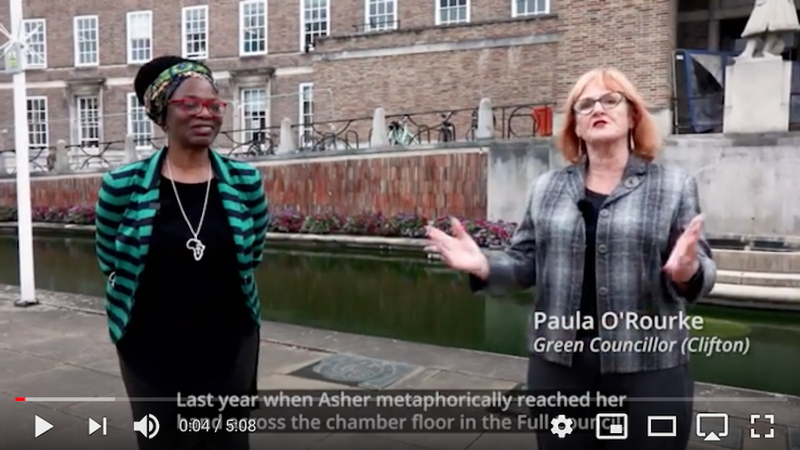
RB: When did you start?
P.O’R: We passed the motion in January and some money was found for it, and then of course the pandemic started in March. I thought all momentum would be lost. But it wasn’t, and again I have to give credit to Asher Craig for this because as the cabinet member she was the one who really decided it.
We speculated that we might have our citizens’ assembly around climate change and meeting our 2030 carbon-neutral target, but then it seemed more important to shape it around ‘build back better’, ‘how to recover’, and the ‘new normal’ – all those phrases which were at the forefront of our minds last year. The real challenge immediately became very obvious then.
I was really worried that we would spend all this resource on doing a citizens’ assembly that would come out with some woolly, amorphous, meaningless macro-suggestions that couldn’t be measurable. We really needed to ensure that we came up with something meaningful, without being too didactic. It took a long time to decide how to do it.
RB: The participants didn’t choose the agenda for this assembly did they?
P.O’R: What we did was a detailed survey of people in Bristol with around 40 questions in it about the city – how people travelled around it, support groups, people working – and for some reason this really captured people’s imaginations. We had about seven times the number of responses we would usually expect, around 8,000 responses. That meant we could find some areas of disagreement among all the things people agreed on, and we chose those more controversial topics to go into the citizens’ assembly.
In the end we refined it down to housing – 40% of our carbon emissions come from powering and warming our houses so we thought that would be a good place to start. A second question was about active travel and liveable neighbourhoods and the third was about equality and health.
RB: How did you choose your 60 participants?
P.O’R: We used sortition and sent out twelve thousand letters with invites. It was oversubscribed and interestingly, the types of people who most oversubscribed were the disabled and the black and minority ethnic communities – the hardest to reach. That was moving.
We used seven criteria overall for representing the demographic spread. Obviously there was sex, age and ethnicity, but also geography, disability, deprivation and employment. Age was revealing because 20% of the citizens of Bristol are under 24 and so 20% of the citizens assembly were young people, who changed the whole timbre of the meeting. Their presence was so dignified!
We also offered a stipend of £300 for attending the assembly on four weekends. That made a big difference to people who needed childcare or were working on a zero-hours contract or whatever.
It made another difference as well: people thought, “Well this is serious. if you are going to pay me – you are actually going to listen to what I am saying.”
We had a huge discussion about range versus depth. If you put one hundred people in a room, would you get the depth of analysis we needed? In the end we decided on sixty people throughout. On the first weekend, the sixty would come together, but in the next two weekends, they would break down into workshops of twenty each, still stratified in those seven categories.
Then they could roll out their recommendations in more depth, come up with more questions, get to know each other better and maybe build up more confidence and be more secure about their knowledge on those issues. The last weekend, they would come back together again and vote on all of their recommendations.
I went into this hoping that if you devolved some real power and dignity to people they would rise to the occasion and they certainly did. Nobody was ever late, nobody missed anything. All sixty citizens turned up to everything. It was amazing.
RB: You kept a record of all their voting results, so that people can see if there was significant support for a counter-proposal and so forth. It’s beautifully laid out on your website.
P.O’R: Yes, all the percentages are in the report. I was a remote observer, and so you could see all these digital sticky notes being moved around while people discussed which recommendations might be combined and so forth. The level of the debate seemed to be extremely intelligent and informed.
RB: You weren’t able to attend?
P.O’R: We felt it was important that people weren’t overlooked and it was the right decision. I was able to observe the expert presentations and the plenaries, but the actual workshops didn’t need that further inhibiting factor.
We did a survey of the participants afterwards and the satisfaction levels were very high on the whole event. Nobody said that they felt that they hadn’t been listened to. The results about how they found being engaged with local democracy were off the scale! “I’m more likely to vote”, “more likely to stand for council”, “more likely to do everything!” Thirty-six of them have said they want to stay in contact. These results were very encouraging and we are going to do it again.
RB: You put together an advisory group to recommend suitable speakers and make sure the debate was fair and balanced. You describe them as having “a breadth of knowledge across the discussion topic areas and a wider understanding of issues facing the diversity of people in Bristol.” How did you choose them?
P.O’R: Having decided our topics we then had to decide how to enable the citizens to come to their decisions: we had to give them expert advisers or people with lived experiences of these issues. At that point, we decided to set up an advisory panel. When the first panel was put together, myself and Asher were on the steering group and were brought the list. We both had the same reaction, which was: “This is just same old, same old. The great and the good. How do these people get to be on the panel? No. We want XR, some of the black and green ambassadors, the young people, people from all sorts of different organisations.” You’ll see the final list on the website: the expert panel is listed there.
The panel made all the difference because the minute they were all in the room, they were saying, “No, you really need to hear from this person”, and “I can put you in touch with this young man who can really tell you what it’s like ‘growing up poor’” – or whatever we thought the issue was. I was nervous about that element of it, because a citizens’ assembly is so much about ‘informed opinion’, if you don’t put the right experts in front of people, it is dangerous.
I think we did get that right. One of the presenters was a council official who I know well from my scrutiny commissions. I noticed that when he was presenting to the citizens, with great emotional intelligence, he changed his style and was very warm and encouraging, whereas with me as a council member, he is more formal and distant – and he seemed to pitch it exactly right so that he could then go into break-out rooms and talk to people and guide them in their conversations, making sure that they were asking the right sort of questions to get at what interested them.
RB: You were reporting your assembly recommendations to two different bodies, the One City Economy Board, ‘to help inform the city’s recovery strategy’, and Bristol City Council’s cabinet, ‘as a key input in shaping future strategy and actions’? What is the first body ?
P.O’R: In June the report is going to the Cabinet and then it will go to the full council. The recommendations will meanwhile be mapped onto all Bristol Council’s boards – the economy board, the environment board, the transport board. What I am hoping is that in all our strategy documents, the recommendations of the citizens’ assembly will have its own colour, so that those recommendations can be tracked in all its stages and we will have a six-month, annual and eighteen-month update to give back to the citizens.
The One City Board comprises business interests, the university, the NHS, all those partner organisations the Mayor needs to drive through progress in Bristol.
One of the assembly’s recommendations, for example, gives those bodies a very clear mandate: “By 2030, 80% of all journeys in Bristol should be by public transport or by active travel. Take 5% of cars off the road every year, and take 5% of parking away for more cycle parking, lanes and walking.”
I feel that I now have a personal mandate from this. But so does our elected mayor. He has said that he accepts all the recommendations. So now it is a question of making sure that they are pushed though. Of course it is difficult. This was our first ever citizens’ assembly and we wanted to embed these processes. I didn’t want to tie us into something less than satisfactory.
So we had the choice: the recommendations could be binding or they could be advisory. We ended up somewhere close to binding, because there was an assumption that they would be accepted. But it was advisory. The report is coming recommended to cabinet. To all intents and purposes, though, we’re on board.
RB: So what is your overall assessment of the whole process?
P.O’R: I grew up in the sectarianism of the conflict in Ireland and there again, it is putting people in a room and letting them understand other people’s experiences that is the first step to change.
I think that happened to some extent as well in our citizens’ assembly. I only saw them on zoom, but you could see elderly people who sounded as if they had been privately educated talking to very young black and Asian Muslims who were all listening to people’s stories. And from the plenaries you could tell that some sort of unifying experience had taken place. It felt really good.
RB: I’d like to read you a quote from Graham Smith – a UK expert in these democratic processes, who I have interviewed for openDemocracy. He said:
“We have a real tension here between digital and deliberative democracy, if I can use that shorthand. I think the digital people are obsessed by numbers, and the funny thing is that this can very easily end up as an old politics – who is shouting the loudest? How many people are ‘liking’? That reminds me of standard electoral politics. Proponents of this approach come to you saying, “Look how many people have engaged with this!” Maybe it is a matter of political taste.
The point about citizens assemblies is that it is not a large group, but it is diverse. And you cannot be sure about that with online ‘likes’. Online engagement will almost certainly not have the diverse characteristics of the broader population, whereas selection by sortition in citizens’ assemblies builds this into the process. … Secondly, should we make our decision by responding to people’s views as they hold them now, given that their normal everyday interaction is with people like themselves, under conditions in which they may not have engaged much, if at all, with a range of other views? Or should we create a democratic space in which people work these issues through with people who are different from them and who hold views that are different from theirs?”
P.O’R: I agree. Those digital spaces like Twitter are so often just echo chambers for people who are like-minded or who hate each other – a complete waste of time! Moreover it skews people’s actions if you think people are going to be commenting all the time. Just go ahead, I say, and do what you believe is the right thing to do.
RB: How influential do you think your assembly was in terms of the public debate in Bristol? For example, would it have impacted on the local election campaigning?
P.O’R: It’s a bit frustrating. I know you can get coverage in no time if there is a huge spat at Council. When I contacted local journalists or broadcasters on this, I would be saying, “Look, just read the recommendations. It’s amazing what they were doing.” But I would get the reply, “People aren’t really interested at the moment: they’re just interested in COVID.”
“It’s recovery from COVID that they were talking about,” I’d say, “That’s what it is!” – but they just haven’t followed it up at all.
I’m still hoping that when the recommendations are reported to cabinet, they will do.
But the problem with deliberative democracy more generally is that the vocabulary is unfamiliar to people, so that when you start talking about sortition or citizens assemblies, people just don’t know what you are talking about.
RB: I totally agree and I find that terrifying because I have been sitting here for four years watching the systematic dismantling of this core element of our parliamentary democracy: Johnson trying to prorogue parliament rather than have a debate, criticising the supreme court for having the powers to prevent this, ending parliamentary scrutiny. I often wonder if anyone else sees what is going on?
P.O’R: They definitely used the pandemic to bypass a lot of parliamentary decision-making. Also of course, we are hugely damaged by our first-past-the-post electoral system. The price this country has paid to enable those two parties to stay in one piece is enormous, not least coming out of Europe for one of them.
How can you engage people in democracy if they realise that the person they want to vote for they can’t vote for and that you are voting for the least bad person; or if they know that 24-30% of the population can get some party in with a majority in parliament?
I used to teach citizenship in schools, and when you taught kids about forms of democracy – theocracies, autocracies, democracies and direct and participative and representative democracies – they were really fascinated. Yet it is a vocabulary that grown ups don’t know anything about! It’s taught to them in one or two lessons. They love it in that moment, but then they forget all about it. They are not eligible to vote, so they are not interested at all, and then they go off into the world. It needs to be taught as a much larger part of the curriculum – and we need to capture that initial fascination.
From watching the plenaries in our Bristol citizens’ assembly – and this is purely anecdotal, there is no measurement of it – just watching the older participants who probably always have felt entitled to have their own opinions, and have a knowledge and understanding of issues, they were nevertheless listening to these young people with amazement in their eyes because they were being so cogent, articulate and offering such reasoned opinions.
There was a real bonding between these people who never would have met each other. And there was definitely a recognition that people did change their standpoints or moderate their views. People would say, “Well I have a car and maybe I don’t like this and that … but maybe the younger generation and other people need that and the other…”. A lot of people undervalue youth and think that you can’t ask a 16-year-old to make decisions. It’s terrible. We should reduce the voting age to sixteen. The whole thing was very enjoyable, and certainly the most uplifting thing I have done politically.
RB: So what’s next, Paula?
P.O’R: We have got three years now to make a difference and I have got loads of ideas. We are going to do another citizens’ assembly next year. The fact that we have 24 councillors is fantastic for these citizens’ assemblies, because we have both the energy and the urgency to implement change as rapidly as possible.
The Green Party is very bottom-up. We are not whipped: everything is by consensus. So we have that sort of ideology anyway. And hopefully if I have my way, we will also be organising participatory budgeting. Asher and I were talking about that just today. In Scotland, they do this really well. They have X-Factor-type competitions for people to come in and bid for the money and people are hugely engaged in this. It’s for everybody.
I don’t think that representative democracy should be replaced. But I think citizens’ assemblies can be used much more at both the regional or national levels.
First and foremost I have learned that I would trust citizens. If they have all the information, they will address the range of concerns and take it all very seriously.
I’m really pleased that more than 50% of the participants in the assembly want to stay involved, and of the seven and a half thousand who filled in the survey over two thousand wanted to be in the citizens’ assembly, and there were loads of people coming to me and saying, “Can I be in the citizens’ assembly?” I had to explain that it didn’t work like that.
But that’s not a bad thing too: it did make the citizens who were chosen feel quite special and privileged to have the opportunity. As I said, nobody was a minute late. 10am and on your marks – everyone was there and paying lots of attention. It was extraordinary.
Rosemary Bechler is a member of DiEM25’s Coordinating Collective.
Do you want to be informed of DiEM25's actions? Sign up here





